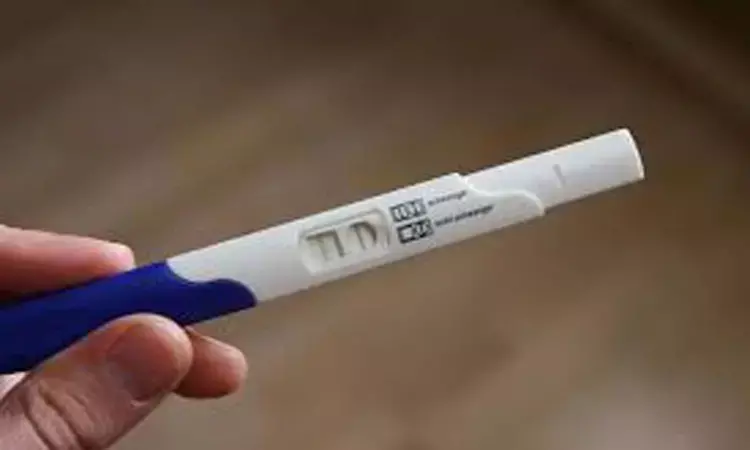- Home
- Medical news & Guidelines
- Anesthesiology
- Cardiology and CTVS
- Critical Care
- Dentistry
- Dermatology
- Diabetes and Endocrinology
- ENT
- Gastroenterology
- Medicine
- Nephrology
- Neurology
- Obstretics-Gynaecology
- Oncology
- Ophthalmology
- Orthopaedics
- Pediatrics-Neonatology
- Psychiatry
- Pulmonology
- Radiology
- Surgery
- Urology
- Laboratory Medicine
- Diet
- Nursing
- Paramedical
- Physiotherapy
- Health news
- Fact Check
- Bone Health Fact Check
- Brain Health Fact Check
- Cancer Related Fact Check
- Child Care Fact Check
- Dental and oral health fact check
- Diabetes and metabolic health fact check
- Diet and Nutrition Fact Check
- Eye and ENT Care Fact Check
- Fitness fact check
- Gut health fact check
- Heart health fact check
- Kidney health fact check
- Medical education fact check
- Men's health fact check
- Respiratory fact check
- Skin and hair care fact check
- Vaccine and Immunization fact check
- Women's health fact check
- AYUSH
- State News
- Andaman and Nicobar Islands
- Andhra Pradesh
- Arunachal Pradesh
- Assam
- Bihar
- Chandigarh
- Chattisgarh
- Dadra and Nagar Haveli
- Daman and Diu
- Delhi
- Goa
- Gujarat
- Haryana
- Himachal Pradesh
- Jammu & Kashmir
- Jharkhand
- Karnataka
- Kerala
- Ladakh
- Lakshadweep
- Madhya Pradesh
- Maharashtra
- Manipur
- Meghalaya
- Mizoram
- Nagaland
- Odisha
- Puducherry
- Punjab
- Rajasthan
- Sikkim
- Tamil Nadu
- Telangana
- Tripura
- Uttar Pradesh
- Uttrakhand
- West Bengal
- Medical Education
- Industry
Mild thyroid dysfunction affects one in five women with history of miscarriage or subfertility

WASHINGTON--Mild thyroid abnormalities affect up to one in five women with a history of miscarriage or subfertility which is a prolonged time span of trying to become pregnant, according to a new study published in the Endocrine Society's Journal of Clinical Endocrinology & Metabolism.
Thyroid disorders are common in women of reproductive age. Although the prevalence of thyroid disorders in pregnancy are well understood, little is known about how common these disorders are in women prior to pregnancy. Detecting thyroid disorders before a woman becomes pregnant is essential because thyroid abnormalities can have negative effects such as reduced fertility, miscarriage and pre-term birth.
"This study has found that mild thyroid abnormalities affect up to one in five women who have a history of miscarriage or subfertility and are trying for a pregnancy," said Rima Dhillon-Smith, M.B.Ch.B., Ph.D., of the University of Birmingham and the Birmingham Women's and Children's NHS Foundation Trust in Birmingham, U.K. "It is important to establish whether treatment of mild thyroid abnormalities can improve pregnancy outcomes, given the high proportion of women who could potentially be affected."
This study was conducted across 49 hospitals in the U.K. over five years. The researchers studied over 19,000 women with a history of miscarriage or subfertility who were tested for thyroid function. They found up to one in five women had mild thyroid dysfunction, especially those with an elevated BMI and of Asian ethnicity, but overt thyroid disease was rare. Women who suffered multiple miscarriages were no more likely to have thyroid abnormalities compared to women who have conceived naturally with a history of one miscarriage.
For more details click on the link: http://dx.doi.org/10.1210/clinem/dgaa302
Hina Zahid Joined Medical Dialogue in 2017 with a passion to work as a Reporter. She coordinates with various national and international journals and association and covers all the stories related to Medical guidelines, Medical Journals, rare medical surgeries as well as all the updates in the medical field. Email: editorial@medicaldialogues.in. Contact no. 011-43720751
Dr Kamal Kant Kohli-MBBS, DTCD- a chest specialist with more than 30 years of practice and a flair for writing clinical articles, Dr Kamal Kant Kohli joined Medical Dialogues as a Chief Editor of Medical News. Besides writing articles, as an editor, he proofreads and verifies all the medical content published on Medical Dialogues including those coming from journals, studies,medical conferences,guidelines etc. Email: drkohli@medicaldialogues.in. Contact no. 011-43720751


